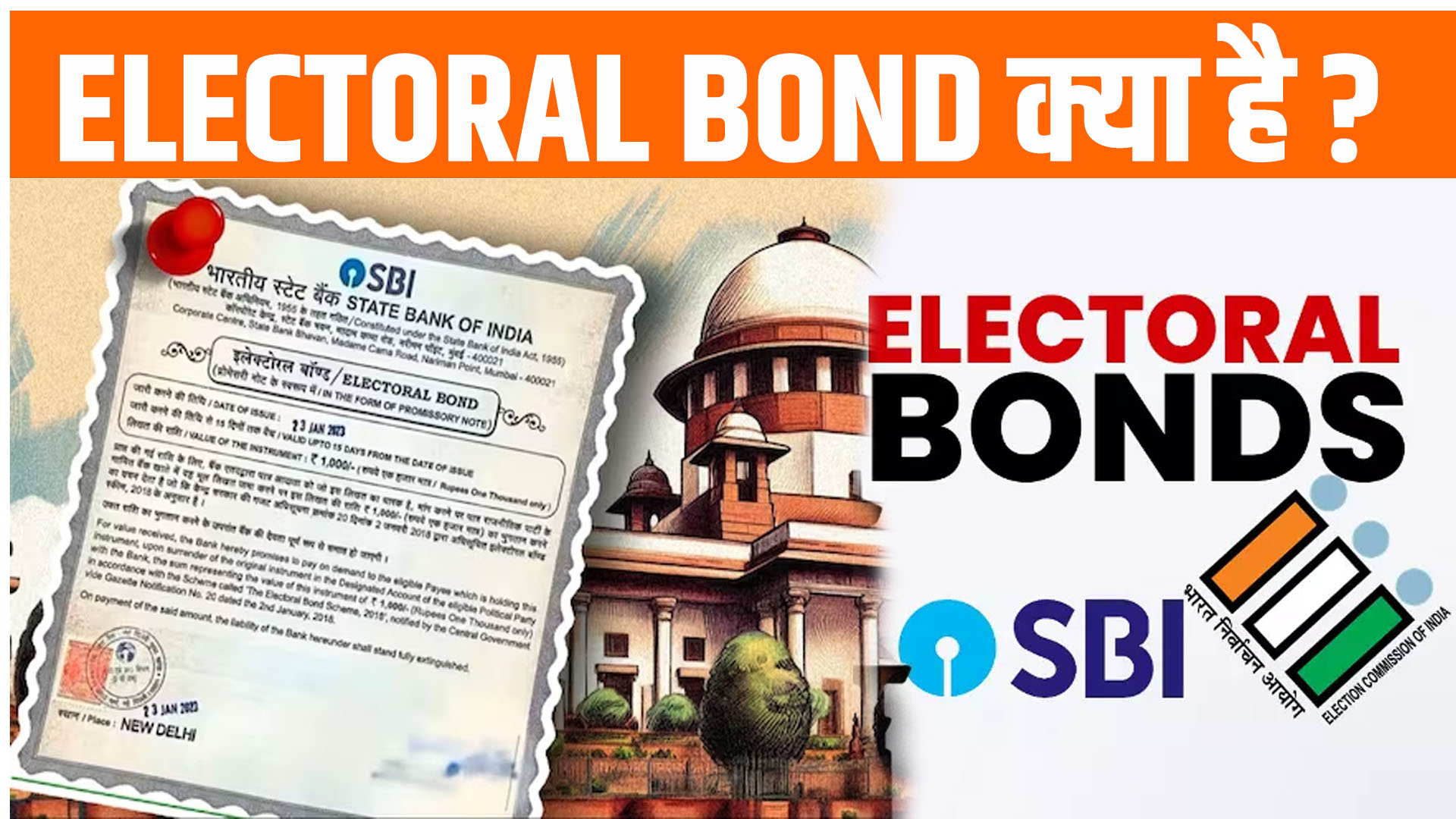WHAT IS ELECTORAL BOND: A bond through which any individual or company provides financial assistance to any political party is called Electoral Bond.
The electoral bonds scheme allows corporations and individuals to anonymously donate money to political parties by purchasing electoral bonds from the State Bank of India (SBI).
WHAT IS ELECTORAL BOND: Notably, the SBI has sole access to the details of those who purchased electoral bonds.
According to the scheme, the proceeds from any bonds, which are not encashed within 15 days of being issued, are to be deposited in the Prime Minister Relief Fund.
These bonds are issued by the State Bank of India (SBI) and are sold in multiples of ₹1,000, ₹10,000, ₹1 lakh, ₹10 lakh, and 1 crore.
The donations made under this scheme by corporate and even foreign entities enjoyed 100% tax exemption while the identities of the donors are kept confidential – both by the bank as well as the recipient political parties.
According to the provisions of the scheme, only the political parties registered under Section 29A of the Representation of the People Act, 1951 and, Which secured not less than 1% of the votes polled in the last elections to the Lok Sabha or a state legislative assembly are eligible to receive electoral bonds.
In order to implement the scheme, the Centre carried out certain amendments to- The Companies Act, Income Tax Act Foreign Contribution Regulation Act (FCRA), and the Reserve Bank of India Act.
This scheme was challenged shortly after it was announced in January 2018, by a number of parties, including the Communist Party of India (Marxist), Common Cause and the Association for Democratic Reforms (ADR).
The case was heard by a 5-judge constitution bench of the Supreme Court led by Chief Justice of India for three days from October 31 to November 2 last year.

